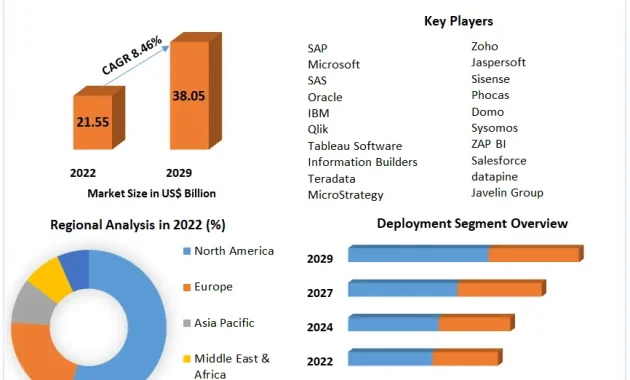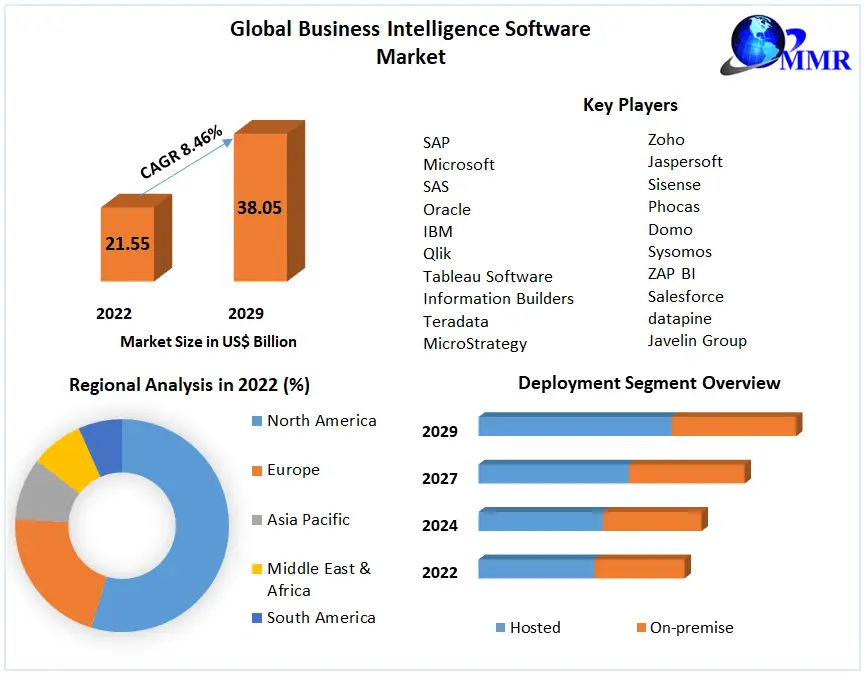
Use Cases for Business Intelligence Software in 2025: Navigating the Data-Driven Future
The year is 2025. Businesses are awash in data. Decisions, once based on gut feeling, are now powered by actionable insights. The engine driving this transformation? Business Intelligence (BI) software. This article delves into the burgeoning use cases for Business Intelligence software in 2025, exploring how organizations are leveraging its power to thrive in a rapidly evolving landscape. From streamlining operations to predicting market trends, BI is no longer a luxury; it’s a necessity.
Optimizing Supply Chains and Logistics
Supply chains have become increasingly complex. Disruptions, from geopolitical events to natural disasters, are commonplace. Business Intelligence software provides real-time visibility into every aspect of the supply chain. This enables businesses to anticipate potential bottlenecks, optimize inventory levels, and reroute shipments proactively. Predictive analytics, a core component of modern BI, forecasts demand fluctuations with greater accuracy. This leads to reduced waste, lower costs, and improved customer satisfaction.
For example, imagine a global retailer using BI to monitor its supply chain. The software identifies a potential disruption in a key shipping lane due to adverse weather conditions. The retailer, armed with this information, immediately reroutes shipments to alternative ports, minimizing delays and ensuring products reach customers on time. This proactive approach, powered by Business Intelligence software, is becoming standard practice.
Enhancing Customer Relationship Management (CRM)
Understanding the customer is paramount. Business Intelligence software empowers businesses to gain a 360-degree view of their customers. By integrating data from various sources – website interactions, social media activity, purchase history, and customer service interactions – BI paints a comprehensive picture of customer behavior and preferences. This enables personalized marketing campaigns, targeted product recommendations, and improved customer service.
Consider a subscription-based service. Using BI, the company analyzes customer churn rates. They identify that customers who frequently contact customer service are more likely to cancel their subscriptions. The company then uses this insight to proactively reach out to these customers, offering personalized support and preventing churn. This data-driven approach to CRM, facilitated by Business Intelligence software, significantly boosts customer retention and loyalty.
Improving Healthcare Outcomes
The healthcare industry is undergoing a significant transformation. Data is at the heart of this revolution. Business Intelligence software is playing a crucial role in improving patient outcomes, optimizing resource allocation, and reducing healthcare costs. BI helps healthcare providers analyze patient data, identify trends, and personalize treatment plans.
For instance, hospitals utilize BI to monitor patient readmission rates. By analyzing factors such as patient demographics, medical history, and treatment protocols, they identify patterns and implement interventions to reduce readmissions. This not only improves patient care but also reduces costs associated with hospital readmissions. Furthermore, BI can assist in predicting potential outbreaks of diseases and allocating resources effectively. [See also: The Role of BI in Pandemic Preparedness]
Driving Innovation in Manufacturing
Manufacturing is embracing the power of data. Business Intelligence software is instrumental in optimizing production processes, improving product quality, and accelerating innovation. BI provides real-time insights into manufacturing operations, enabling manufacturers to identify inefficiencies, reduce waste, and improve overall productivity.
Manufacturers use BI to monitor equipment performance, predict potential equipment failures, and schedule preventative maintenance. This minimizes downtime and reduces maintenance costs. Data from sensors embedded in manufacturing equipment is analyzed to identify patterns and optimize production processes. This leads to improved product quality and reduced defects. Moreover, BI helps manufacturers identify opportunities for innovation by analyzing customer feedback and market trends. [See also: The Impact of BI on Smart Manufacturing]
Transforming the Financial Services Industry
The financial services industry relies heavily on data. Business Intelligence software is essential for risk management, fraud detection, and regulatory compliance. BI helps financial institutions analyze vast amounts of data to identify fraudulent activities, assess credit risk, and comply with complex regulations.
Banks use BI to detect fraudulent transactions in real-time. By analyzing transaction patterns, they can identify suspicious activities and prevent financial losses. BI also assists in assessing credit risk by analyzing customer credit history, income, and other relevant factors. This enables banks to make informed lending decisions and minimize the risk of loan defaults. Compliance with regulations is also simplified through the use of BI tools, which provide automated reporting and analysis capabilities. [See also: How BI is Revolutionizing Fintech]
Boosting Retail and E-commerce Performance
Retailers and e-commerce businesses generate massive amounts of data. Business Intelligence software empowers them to analyze sales data, customer behavior, and market trends to optimize pricing, inventory management, and marketing campaigns. BI enables retailers to understand which products are selling well, identify customer preferences, and personalize the shopping experience.
E-commerce businesses use BI to analyze website traffic, track conversion rates, and optimize their online stores for better performance. They identify which products are most popular, what marketing campaigns are most effective, and where customers are dropping off in the sales funnel. This data-driven approach leads to increased sales, improved customer satisfaction, and enhanced profitability.
Key Features and Trends in Business Intelligence Software in 2025
Several key features and trends will define Business Intelligence software in 2025:
- Artificial Intelligence (AI) and Machine Learning (ML) Integration: AI and ML will be deeply integrated into BI platforms, automating data analysis, identifying patterns, and providing predictive insights.
- Cloud-Based Solutions: Cloud-based BI solutions will continue to dominate, offering scalability, flexibility, and accessibility.
- Data Visualization and Storytelling: Advanced data visualization tools will enable users to easily understand complex data and communicate insights effectively.
- Self-Service BI: Self-service BI tools will empower business users to access and analyze data without relying on IT departments.
- Real-Time Analytics: Real-time data processing and analysis will become increasingly important, enabling businesses to make timely decisions.
The Future of Business Intelligence
The use cases for Business Intelligence software in 2025 are vast and varied. As businesses generate more data than ever before, the need for sophisticated BI solutions will only increase. Organizations that embrace BI and leverage its power will be best positioned to thrive in the data-driven future. By providing actionable insights, predictive analytics, and real-time visibility, Business Intelligence software is transforming how businesses operate, make decisions, and achieve success.
The ability to anticipate market trends, optimize operations, and personalize customer experiences will be crucial for competitive advantage. Business Intelligence software is the key to unlocking these opportunities. [See also: The Impact of BI on Business Strategy]
Looking ahead, the continued evolution of Business Intelligence software will be driven by advancements in AI, cloud computing, and data visualization. The future of business is data-driven, and Business Intelligence software is the tool that will empower businesses to navigate this future successfully.
The Business Intelligence software landscape in 2025 is set to be dynamic and transformative. The ability to harness the power of data will be the defining characteristic of successful businesses. The use cases for Business Intelligence software will continue to expand as technology evolves. Implementing Business Intelligence software is an important step for any company.

